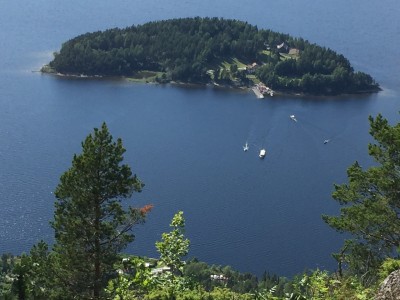The Norwegian government and victim support groups have held memorial ceremonies every year since a right-wing gunman killed 77 people on July 22, 2011, 69 of them on the island of Utøya. That will end with the fifth anniversary next year, according to the head of a national victims’ support group, who says it’s time to tone down the ceremonies and make them more private.

“We view a reduction of the memorials as something natural,” Lisbeth Kristine Røyneland, who recently took over as leader of the national support group for July 22 victims, told news bureau NTB. “We will of course always mark the day, but it will become more private in character.”
As the prime minister, the crown princess and other dignitaries gathered in Oslo on Wednesday, and more gathered later for another memorial on Utøya, there was a feeling that it’s time to move on. “As people and a society, we shall move forward,” Jonas Gahr Støre, head of the Labour Party that was attacked along with its youth group four years ago, said at the late afternoon memorial on Utøya.
John Hestnes, who has headed the national victims’ support group, called July 22 “the worst day (of the year), both for me and especially the families of victims. You’re reminded again of the terror, so it’s a tough day.” He confirmed that from 2017, the memorial ceremonies will be smaller and unofficial, except for those falling on what Norwegians call “round years” in the form of 10-year anniversaries.
“We had actually thought about toning things down this year,” Røyneland told NTB, “but since a monument was being unveiled on Utøya (the island where 69 people were killed) and the 22 July Center was being opened in the government complex (where a bomb killed another eight people and destroyed several ministries), we carried on the ceremonies from previous years.”
She said the new information center at the site of the bombing will give victims “a natural gathering place in Oslo.” Smaller ceremonies can be held there, she said.
“Everyone will of course be welcome, but there won’t be any official program with speeches by the prime minister and such,” added Hestnes. After next year’s fifth anniversary memorial ceremonies, the next won’t be held until 2021, on the 10th anniversary of the attacks.
‘Good plan’
Researcher Grete Dyb of the national center for violence and traumatic stress told NTB that sounded like a good plan. She said that large, annual ceremonies aren’t necessarily the best for the survivors of the attacks and families of the victims.
“They need both memorials and space,” Dyb said. “The most important thing is that the attacks aren’t forgotten, and that survivors are reassured of that.”
Mani Hussaini, head of the Labour Party’s youth group AUF targeted in the attacks by a right-wing gunman, said it’s important for the group to continue to gather on the island of Utøya “to meet old and new friends and be reminded that they’re not alone in their sorrow.” The government continues to cooperate with both AUF and the support group. AUF will hold its first summer camp back on Utøya since the attacks early next month.
newsinenglish.no/Nina Berglund

